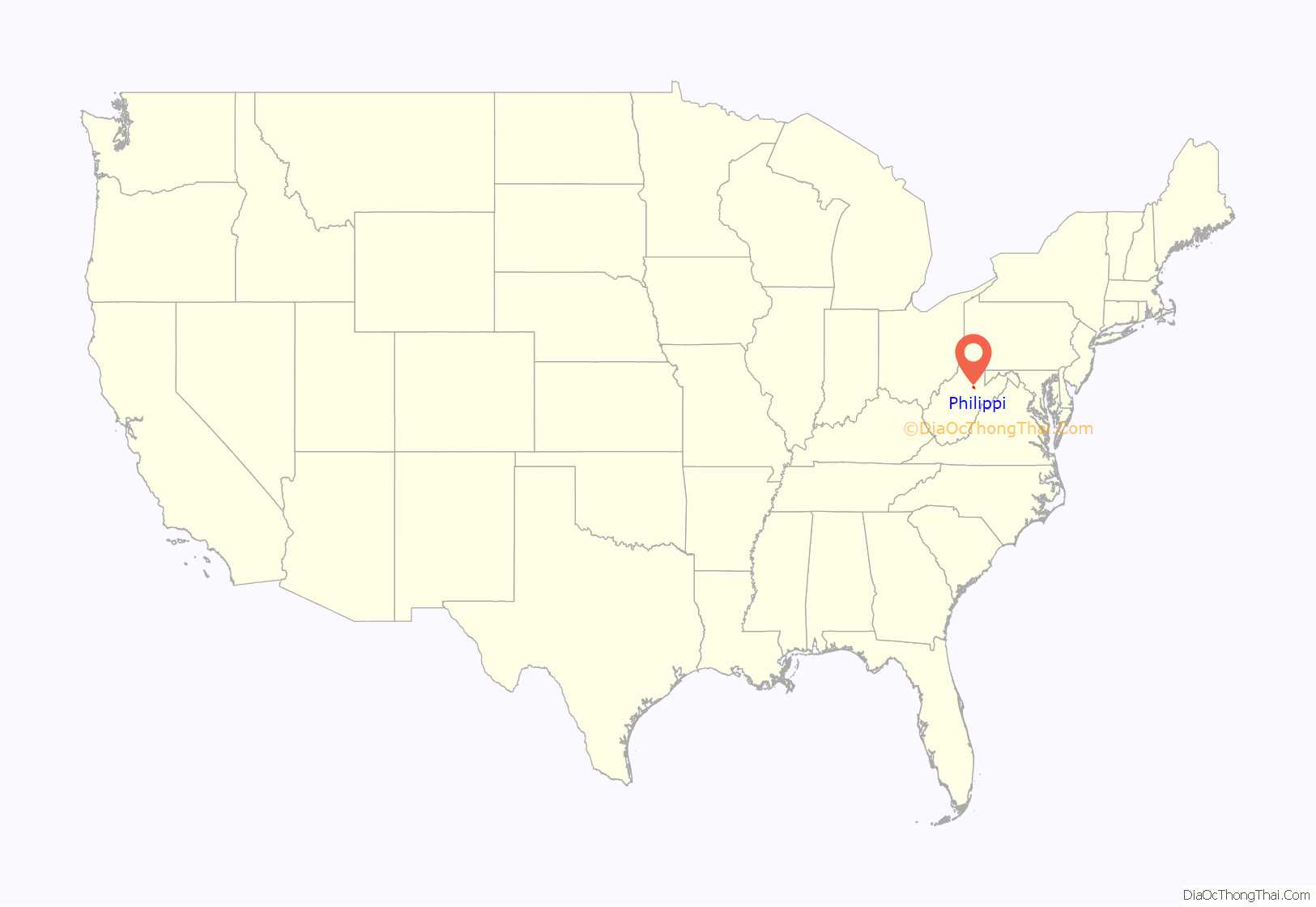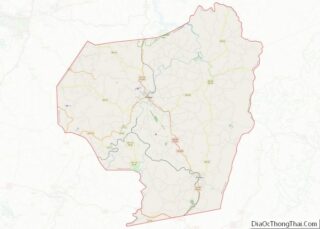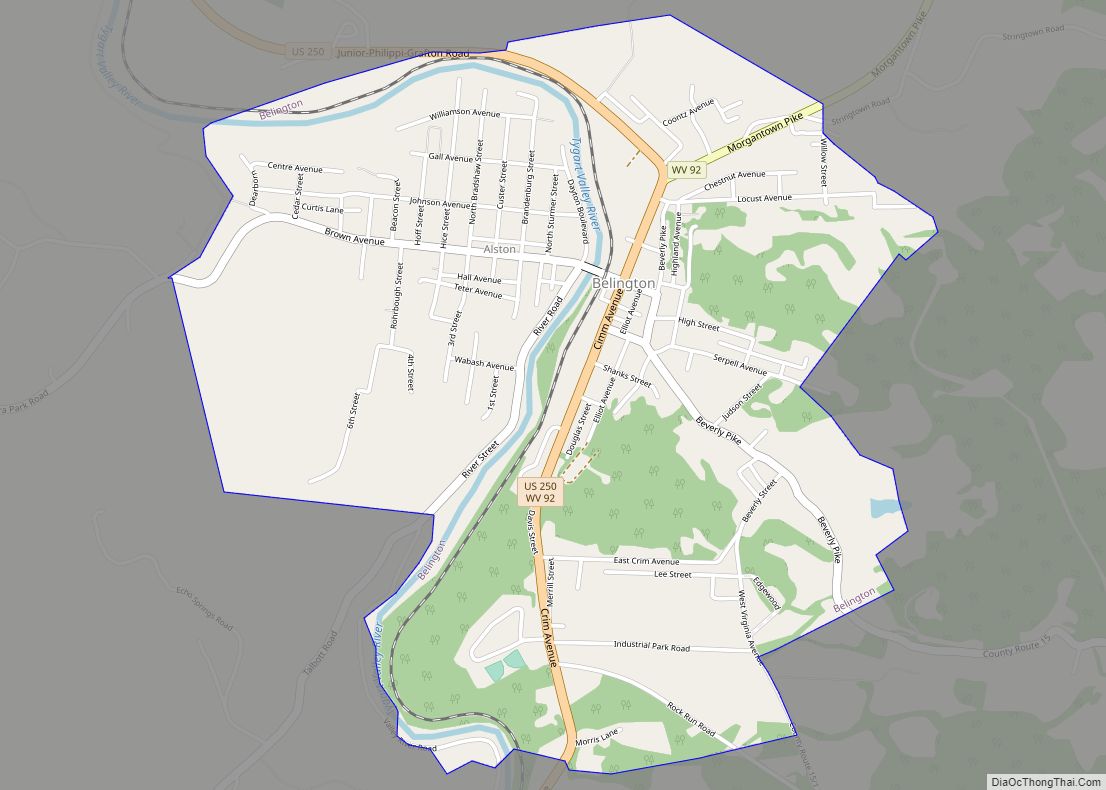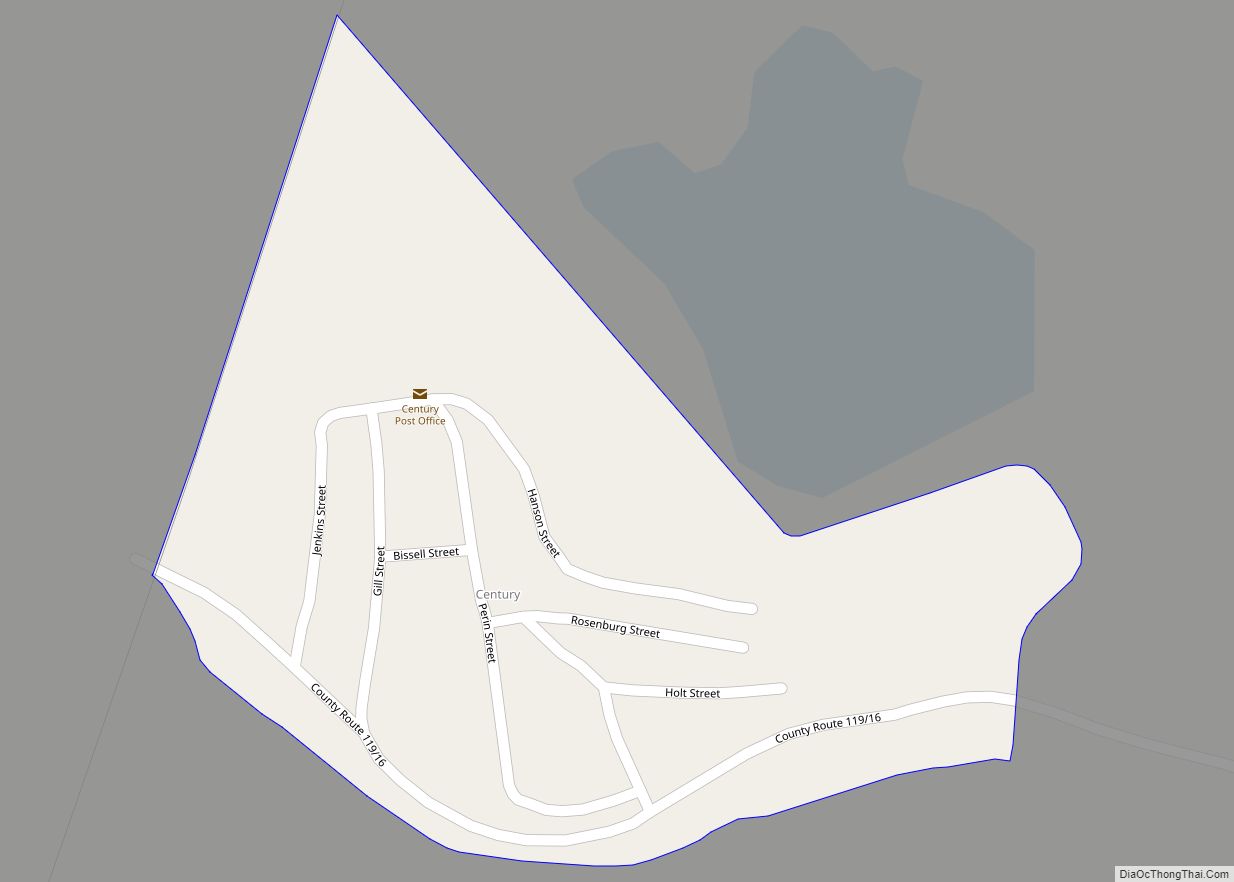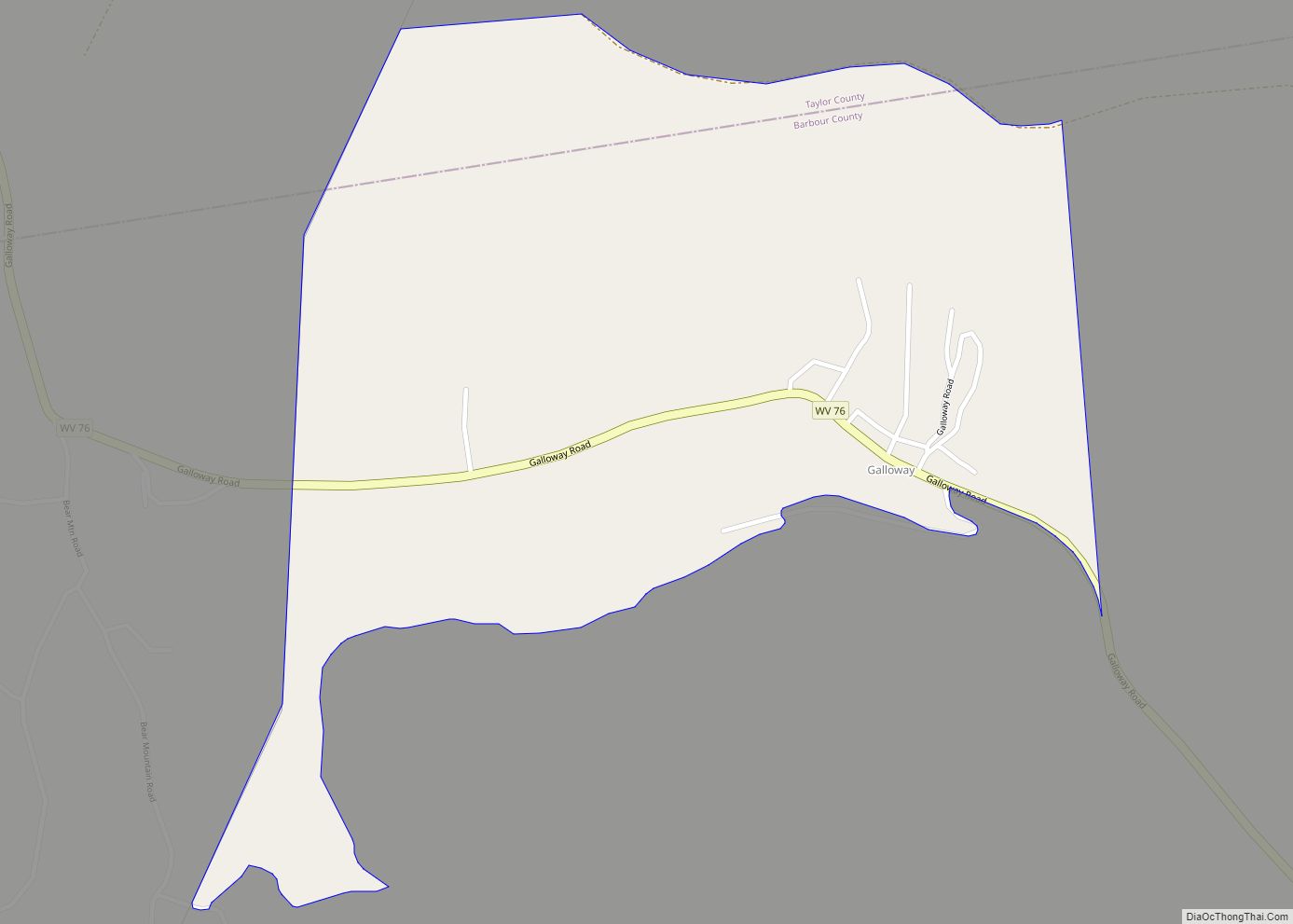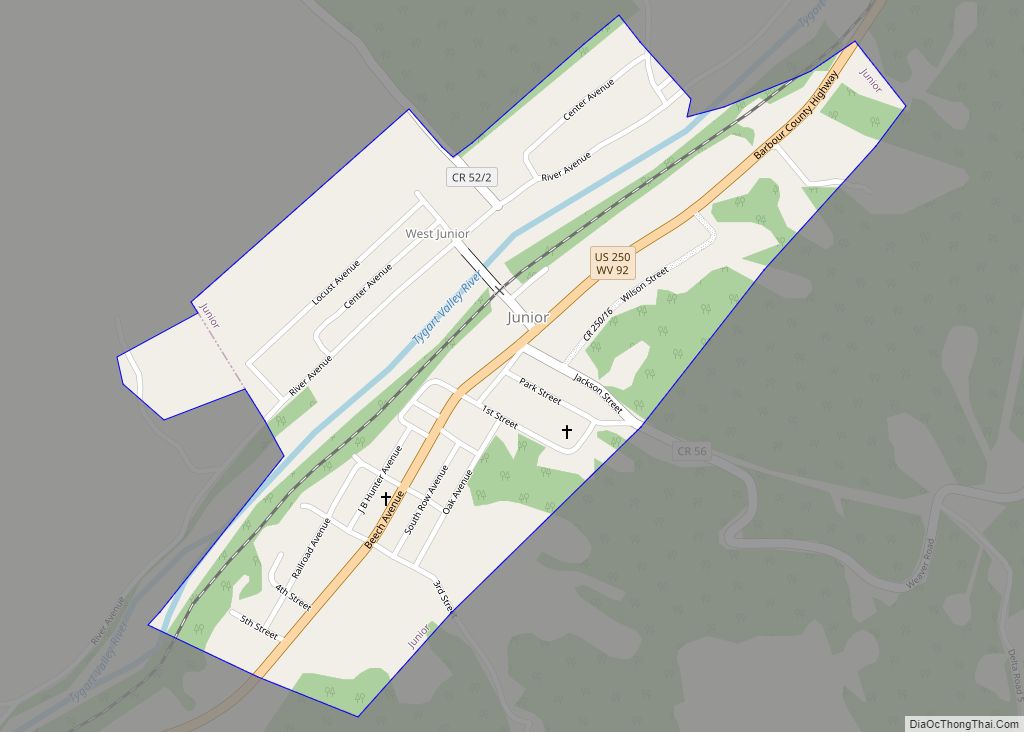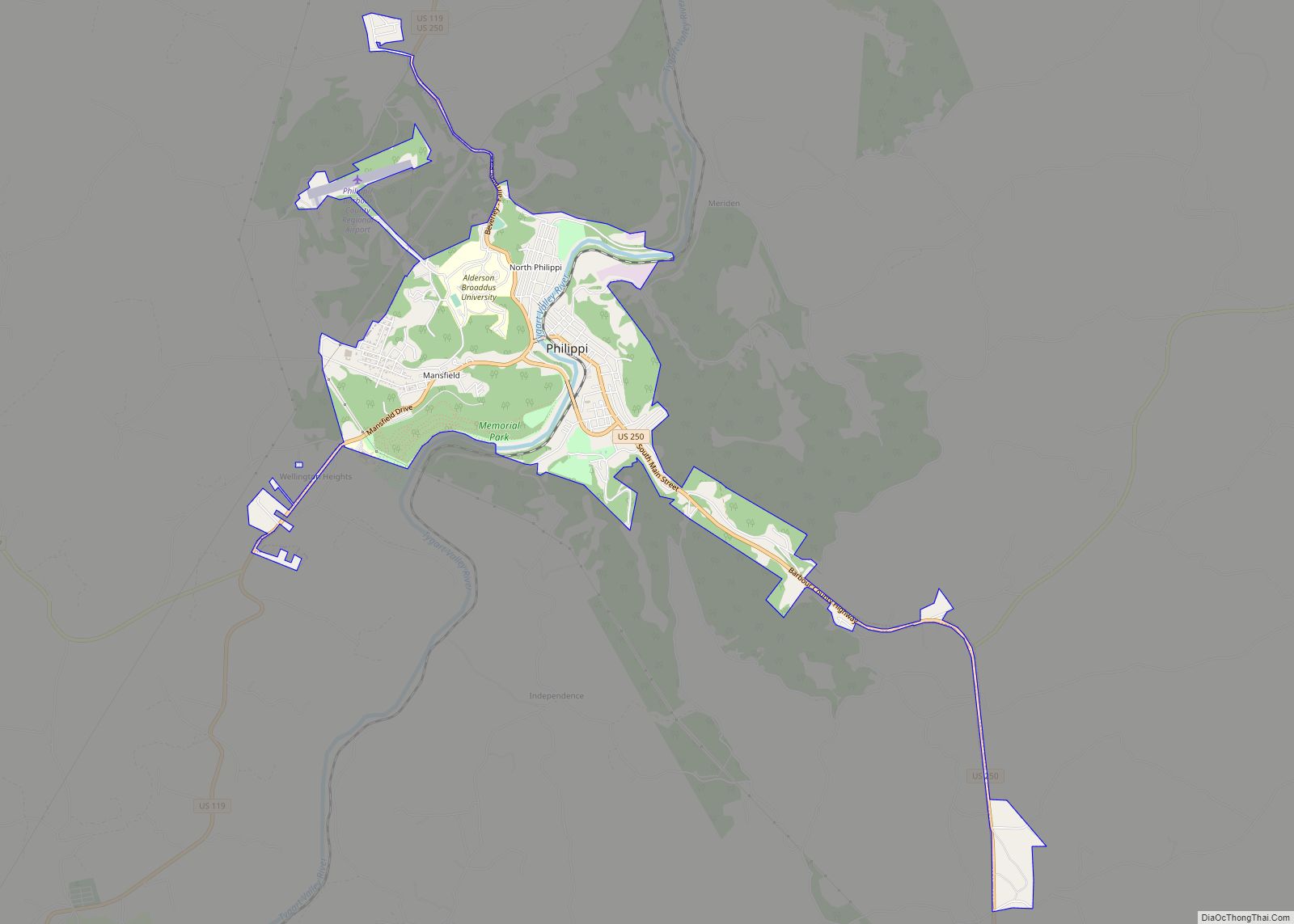Philippi (‘FILL-uh-pea’) is a city in and the county seat of Barbour County, West Virginia, United States, along the Tygart Valley River. The population was 2,929 at the 2020 census. In 1861, the city was the site of the Battle of Philippi, known as the “Philippi Races”. Although a minor skirmish, this is considered the earliest notable land action of the American Civil War. It is also known as the home of Alderson Broaddus University, a four-year liberal-arts college affiliated with the American Baptist Churches. The city has a weekly newspaper, The Barbour Democrat.
| Name: | Philippi city |
|---|---|
| LSAD Code: | 25 |
| LSAD Description: | city (suffix) |
| State: | West Virginia |
| County: | Barbour County |
| Elevation: | 1,302 ft (397 m) |
| Total Area: | 2.92 sq mi (7.57 km²) |
| Land Area: | 2.83 sq mi (7.33 km²) |
| Water Area: | 0.09 sq mi (0.24 km²) |
| Total Population: | 2,928 |
| Population Density: | 1,150.88/sq mi (444.35/km²) |
| ZIP code: | 26416 |
| Area code: | 304/681 |
| FIPS code: | 5463292 |
| GNISfeature ID: | 1544780 |
| Website: | www.philippi.org |
Online Interactive Map
Click on ![]() to view map in "full screen" mode.
to view map in "full screen" mode.
Philippi location map. Where is Philippi city?
History
Settlement, founding and naming
The first white settlement in present-day Barbour County was established approximately three miles downriver from the future site of Philippi in 1780, at which time the area was still part of western Virginia and included within Monongalia County. The earliest settlers on the section of bottomland that would one day become Philippi were William Anglin (as early as 1783 or ’84) and Daniel Booth (1787). A ford existed here as early as 1789 which served the road that had recently been surveyed between Beverly and Sandy Creek. Anglin was the original owner of the land upon which Philippi stands, hence the earliest known name for the locality — Anglin’s Ford. Booth also owned and operated a commercial ferry here in the 1790s, thus the area’s second popular designation — Booth’s Ferry. William Friend Wilson married Booth’s daughter and built a wool and grain mill on the river in 1818.
In March 1843, the vast Monongalia County of western Virginia was carved up into several smaller political units, among them Barbour County, which included Booth’s Ferry. In 1899, Hu Maxwell described the April 1843 founding and official naming of the new county seat:
As Maxwell implies, St Paul’s Epistle to the Philippians and the ancient Battle of Philippi were no doubt influential in the final form of the name. Philippi was established by charter in 1844.
In 1852 Lemuel Chenoweth, an Appalachian architect and carpenter, built a covered bridge in Philippi to provide a link on the turnpike running between Beverly and Fairmont. The Philippi Covered Bridge spelled the end of the commercial ferry operation and is still the town’s prominent landmark.
Civil War
Philippi was the scene of the first land battle of the American Civil War, on June 3, 1861. The battle was promptly lampooned as the “Philippi Races” because of the hurried retreat by the Confederate troops encamped in the town. (The battle is reenacted every June during the town’s ‘Blue and Gray Reunion.’)
At daylight on June 3, two columns of Union forces under the command of Col. Benjamin Franklin Kelley and Col. Ebenezer Dumont, with perhaps 3,000 men, arrived from Grafton and attacked about 800 poorly armed Confederate recruits under the command of Col. George A. Porterfield. The Union troops had marched all night through a heavy rain storm to arrive just before daylight. The surprise attack — from the heights of “Battle Hill” to the northwest — awakened the sleeping Confederates. After firing a few shots at the advancing Union troops, the Southerners broke lines and began running frantically to the south, some still in their bed clothes.
The Union victory in a relatively bloodless battle propelled the young Major General George B. McClellan into the national spotlight, and he was soon be given command of all Union armies. The battle also inspired more vocal protests in the Western part of Virginia against secession. A few days later in Wheeling, the Wheeling Convention nullified the Virginia ordinance of secession and named Francis H. Pierpont governor. These events eventually resulted in the separate statehood of West Virginia.
Later history
Philippi was incorporated by act of the West Virginia Legislature on 1 February 1871. The first railroad — the Grafton and Greenbrier, a narrow gauge — arrived at Philippi on 25 January 1884. Three years later the line was extended to Belington and in 1891 it became a standard gauge when it was acquired by the B&O. In 1904, citizens passed a bond issue permitting the city to begin generating electricity for the first time by gas.
In 1901, Broaddus College (founded in 1871 in Winchester, Virginia and later located in Clarksburg, West Virginia) relocated to “Battle Hill”, overlooking Philippi. In 1932, Broaddus merged with Alderson Academy (itself founded in 1901 in Alderson, West Virginia), whereupon these two Baptist institutions became Alderson–Broaddus College. (The institution changed its name to the current “Alderson Broaddus University” in 2013.)
In 1905 a new Barbour County Courthouse was completed. It was designed by J. Charles Fulton in a monumental Romanesque Revival style. The building contractor was J.P. Conn.
Rail activity at Philippi peaked in the 1920s when as many as six passenger trains, along with mail and freight, transited the town daily. The automobile brought about a decline in the local railroad service, however, and the final passenger train made its last stop in Philippi in 1956.
Throughout its history, Philippi has suffered from floods because of its proximity to the river and the relatively low elevation of most of the town. The most damaging of these came in November 1985. The town has since adopted a flood plain management plan.
Philippi Road Map
Philippi city Satellite Map
Geography
Philippi is along the Tygart Valley River at 39°9′6″N 80°2′36″W / 39.15167°N 80.04333°W / 39.15167; -80.04333 (39.151569, -80.043472). It is within Philippi District — one of eight magisterial districts of Barbour County. The town is sub-divided into Wards 1 through 4.
According to the United States Census Bureau, the city has a total area of 2.95 square miles (7.64 km), of which 2.86 square miles (7.41 km) is land and 0.09 square miles (0.23 km) is water.
The original settlement that became the town of Philippi was on a section of bottomland at a bend in the river at the mouth of Anglin’s Run. This area was later designated “Dayton Park”. Opposite this bottomland, at the western landing of “Booth’s Ferry”, is a sharp ridge which breaks abruptly down to the river and is still known as “Nobusiness Hill”. Most of the town is in the bottomland, but a portion, including the university campus, is on another ridge — “Battle Hill”, also called “Talbott’s Hill” — overlooking the valley from the northwest. To the south, a third landmark hill — “Grabanickel Hill” — completes the ring of high ground encircling the town.
A railroad line runs through Philippi, now used only by freight trains, passenger rail service having been discontinued in 1956. The historic 1911 passenger station has served as the Barbour County Historical Museum since the station’s restoration in 1979. The town is served by the small, private Philippi-Barbour County Regional Airport.
Climate
The climate in this area is characterized by hot humid summers and generally mild to cool winters. According to the Köppen Climate Classification system, Philippi has a humid subtropical climate, abbreviated “Cfa” on climate maps.
See also
Map of West Virginia State and its subdivision:- Barbour
- Berkeley
- Boone
- Braxton
- Brooke
- Cabell
- Calhoun
- Clay
- Doddridge
- Fayette
- Gilmer
- Grant
- Greenbrier
- Hampshire
- Hancock
- Hardy
- Harrison
- Jackson
- Jefferson
- Kanawha
- Lewis
- Lincoln
- Logan
- Marion
- Marshall
- Mason
- McDowell
- Mercer
- Mineral
- Mingo
- Monongalia
- Monroe
- Morgan
- Nicholas
- Ohio
- Pendleton
- Pleasants
- Pocahontas
- Preston
- Putnam
- Raleigh
- Randolph
- Ritchie
- Roane
- Summers
- Taylor
- Tucker
- Tyler
- Upshur
- Wayne
- Webster
- Wetzel
- Wirt
- Wood
- Wyoming
- Alabama
- Alaska
- Arizona
- Arkansas
- California
- Colorado
- Connecticut
- Delaware
- District of Columbia
- Florida
- Georgia
- Hawaii
- Idaho
- Illinois
- Indiana
- Iowa
- Kansas
- Kentucky
- Louisiana
- Maine
- Maryland
- Massachusetts
- Michigan
- Minnesota
- Mississippi
- Missouri
- Montana
- Nebraska
- Nevada
- New Hampshire
- New Jersey
- New Mexico
- New York
- North Carolina
- North Dakota
- Ohio
- Oklahoma
- Oregon
- Pennsylvania
- Rhode Island
- South Carolina
- South Dakota
- Tennessee
- Texas
- Utah
- Vermont
- Virginia
- Washington
- West Virginia
- Wisconsin
- Wyoming
